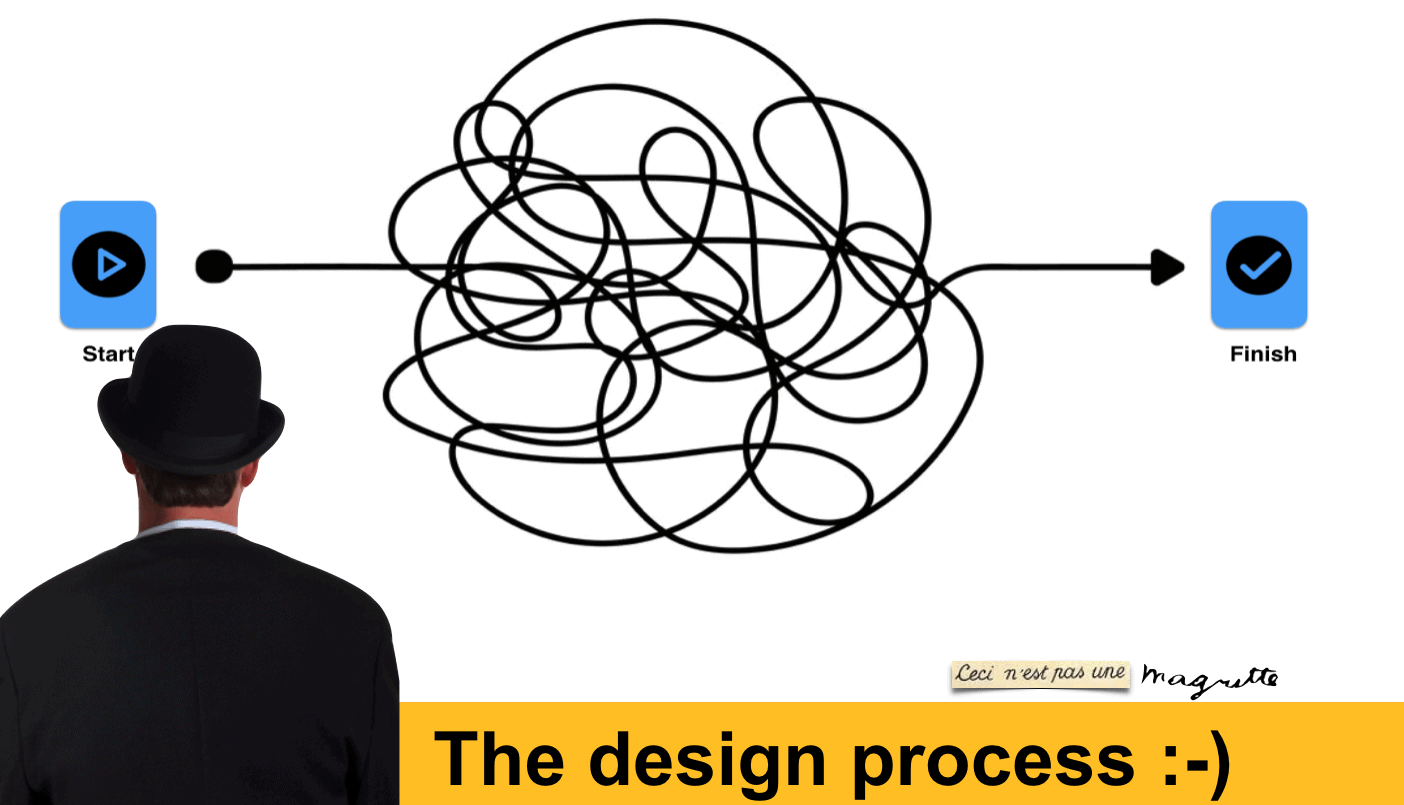Evrim Baran (who I often joke is the only reader of this blog) sent me this link to a set of notes by Jeff Jarvis from a TED talk he recently gave. He says that he
used the opportunity of a TED event to question the TED format, especially in relation to education, where — as in media — we must move past the one-way lecture to collaboration.
Check out TEDxNYed: This is bullshit
Here is a key quote, but go ahead the whole thing.
So we need to move students up the education chain. They don’t always know what they need to know, but why don’t we start by finding out? Instead of giving tests to find out what they’ve learned, we should test to find out what they don’t know. Their wrong answers aren’t failures, they are needs and opportunities.
But the problem is that we start at the end, at what we think students should learn, prescribing and preordaining the outcome: We have the list of right answers. We tell them our answers before they’ve asked the questions. We drill them and test them and tell them they’ve failed if they don’t regurgitate back our lectures as lessons learned. That is a system built for the industrial age, for the assembly line, stamping out everything the same: students as widgets, all the same.
But we are no longer in the industrial age. We are in the Google age. Hear Jonathan Rosenberg, Google’s head of product management, who advised students in a blog post. Google, he said, is looking for “non-routine problem-solving skills.” The routine way to solve the problem of misspelling is, of course, the dictionary. The non-routine way is to listen to all the mistake and corrections we make and feed that back to us in the miraculous, “Did you mean?”
“In the real world,” he said, “the tests are all open book, and your success is inexorably determined by the lessons you glean from the free market.”
One more from him: “It’s easy to educate for the routine, and hard to educate for the novel.” Google sprung from seeing the novel. Is our educational system preparing students to work for or create Googles? Googles don’t come from lectures.



Another reader, years later and in part thanks to Silver Lining for Learning. Steve, I understand what you are saying and I agree there are parts of education where memorization helps speed up data collection or processing of information for students. But the heart of this talk and education is to change to an inquiry-based model, foster curiosity, creativity, and imagination in our students, and teach them what learning is really about. That is the challenge because students by the time they reach my level (middle school) they have already learned to “play the game” and the attitude shared by so many are “just tell me what I need to know to pass the test” as if that is the end goal of education. Breaking this mode has been the challenge and it still hasn’t happened 11 years later, perhaps because the people doing the talking aren’t being heard and change is hard for many people to handle especially when you are not sure what “should” look like. Also, I believe many in the education profession want that validation and ego as Jeff mentions, and the fountain of all knowledge for their students, or I need to prepare them for some standardized test they are to take that is a marker for my evaluation as an educator, or worse a requirement for graduation. For some of us trying to think like a revolutionary or visionary is difficult especially since we were educated through the same “widget factory” that is age-based rather than ability-based in its practice. But that focuses on other issues with the institution of education for another topic I am sure.
You got yourself another reader, 11 years later, but still =)
shark = sharp. i wrote that so quickly, there are probably other glaring errors. i apologize for being sloppy.
Evrim and I. Two readers.
This is golden: “So we need to move students up the education chain. They don’t always know what they need to know, but why don’t we start by finding out? Instead of giving tests to find out what they’ve learned, we should test to find out what they don’t know. Their wrong answers aren’t failures, they are needs and opportunities.”
However, this bit is potentially problematic in my opinion: “In the real world,” he said, “the tests are all open book, and your success is inexorably determined by the lessons you glean from the free market.”
I get it. I understand where he is going with that statement. It is laced with truth. However, it is a very very polarizing statement like this one that might just take a really solid teacher… let’s even say one that is on the fence of enlightenment… and push them back to the original side. Why? Because it is just so extreme. While it is true that the real world doesn’t hole people away in quiet rooms to solve problems in isolation, it doesn’t mean that all factual information is irrelevant.
I can tell you from the trenches of public school PD that when I toss up a graphic asking a question along the lines of: “when students all arrive with Google in their pockets… will we ask better questions?” I inevitably get some odd fallout. I would have never guessed that later I’d hear whispers toward the notion that facts are no longer important. We shouldn’t be “teaching” facts at all now that all kids have Google, etc…
It is frustrating to realize that some of your main points from PD create rather fundamental misconceptions and potential misdirection. However, such is the life of a teacher, right? We regroup and approach the issue from a renewed angle. (hopefully)
At the same time I ask teachers to consider how questioning in a world where much information is plentiful and free- I also cannot imagine my marine biology students swimming underwater, collecting real-world data on the fish assemblages of a coral reef, and expecting to identify species by some “open book” or otherwise collaborative method. It doesn’t work that way. Life moves pretty fast. Data collection in the real world often moves even faster than this. If my students cannot learn to sight identify some 100-odd species of reef fish, they simply cannot collect data for our team. They cannot contribute to the databases at Reef.org. In short, if they cannot apply memorization of visual patterns and “facts,” they cannot apply and this create new learning.
That scenario certainly isn’t the sum total of the experience in my classroom. We have as open of a classroom as I have seen. We learn from many experts as well as one another… and we do it every day by starting with what students currently know and are able to do. We actively seek out the holes within our knowledge to find out how to target our learning.
Why we swing so wildly to a far like a pendulum in education, I cannot say for sure. But in public secondary schools in the past 18 years at least- we certainly do. That tendency to grab one element of a carefully planned argument, or piece of research and run with it, isn’t one of our best characteristics.
Sorry to be so long winded. If you think I must have some words like this logged back in the “drafts” section of my blog, you’re right. The bottom line from where I sit right now is this: I appreciate and believe in an ideal wherein school move away from pre-arranged and disjointed learning targets- particularly when administrated by non-educators in Washington of Jefferson City. However, I have learned to temper my radical voice in light of the education community’s tendency to swing back and forth with the next strong wind that approaches. The notion of “research based” in public education is rather interesting at times. It often differs radically from the examination of research I was so accustomed to after a really solid education in the biology.
In my opinion, we really DO need to move beyond the world of prescribed, decontextualized, teacher-directed learning. We need more inquiry. We need real guided inquiry by “more knowing others.” We need students empowered to assess what they know and what they do not know. We need students who are encouraged and instructed on how to seek answers to the questions they develop. And we we need students to move more into the realm of creation- a true synthesis of knowledge.
If we did those things well, we would have students filling their brains with the prerequisite facts needed for such deep learning. Facts and memorization, and staring at flash card from time to time aren’t evil in their own right. Those things are the stuff of early learning in a field. Those things don’t work well when shoved down the throats of others. Those things need personal commitment and engagement. If students are viewed as people learning… as opposed to people to “educate,” we’d be better off.
It takes a really shark cookie to make sense of some sort of an “open book” test- if the questions are really worth asking. We want our students to be free-thinkers in an open, collaborative ecosystem of learning. The thing is- they just don’t get there overnight. They need smart, scaffolded experiences leading ultimately to openness that are still always within a blink of their zone of proximal development.
Of course these are only one person’s opinions tempered by some experience and a dash of action research. Thanks for sharing this.
😉